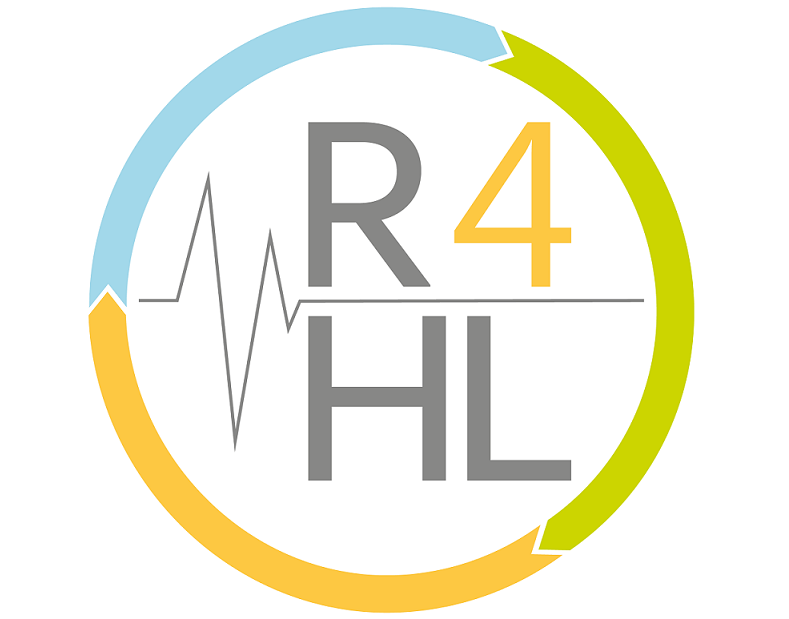
Discover the results of the Erasmus+ project “Routine for Healthy Life” (R4H)
2 years ago
The Erasmus+ project “Routine for Healthy Life” is coming to an end. Discover all the results created on the project website.
The “Routine for Healthy Life” project, a small-scale partnership in the field of Adult Education, co-financed by the European Union through the Erasmus+ programme, will end in August.
The 18-month project was launched in February 2022 and closed with a final project meeting, which was held from 6 to 9 June in Malaga (Spain), hosted by Asociación Iniciativa Internacional Joven (AIIJ).
All the partnership organizations were present at the meeting, from Italy (Travelogue APS, project coordinator), Spain (AIIJ), Czech Republic (GLAFKA s.r.o.) and Greece (Center for the Promotion of European Cooperation and Integration - Europerativa).
During the coordination meeting, the partners presented the latest activities implemented at international and local level in each country and discussed the impact, dissemination and sustainability of the project.
The partners also presented the project results to the public during a dissemination conference at the El Cónsul Health Center (Centro de Salud El Cónsul), with the involvement of its staff and the local population.
The aim of the project was to help people to face an unexpected crisis and to learn how to deal with it in order to preserve their psycho-physical well-being and balance.
In fact, the project intended to contribute to the needs of understanding and accompanying the changes occurred by the recent crisis caused by the pandemic of Covid-19, which have affected all segments of the population, in particular adults, lonely people, those at risk of social exclusion.
Among the products and the results achieved we highlight:
- Multilingual project website with an integrated e-learning platform
-
Survey that collects information on the problems faced during the pandemic, with particular attention to the needs that emerged from the learners;
-
“Diary of a Healthy Routine”, created by the learners, identifying forward-looking goals to motivate themselves;
-
Webinars, videos and e-learning modules created by the partners, uploaded in the project e-learning platform in English, Italian, Spanish, Czech and Greek on the topics of physical activity for a healthy life, healthy nutrition, psychological well-being, problem solving ability and proactivity, digital tools for communication, job search and lifelong learning;
-
“Healthy routine planner”, a weekly plan of healthy activities and tips to preserve health and wellness;
-
Report of the workshops for the application of the “Healthy routine planner”, summarizing the experiences in all the countries;
-
Development of key competences of adult learners, in particular: digital, multilingual, personal, social and learning to learn competences and some aspects related to mathematical competence and competence in science, technology and engineering;
-
Development of adult knowledge in the field of psycho-physical well-being and self-care skills to preserve one's balance and well-being;
-
Development of problem-solving skills and creative thinking.
The project has had a great impact on the learners involved, adults and seniors, offering opportunities for discussion on the problems faced during the pandemic with other adults in their own country and in other European countries. It has also allowed the creation of educational and socialization opportunities for people at risk of social exclusion, helping to strengthen interpersonal relationships with peers and to create new bonds, as well as developing adults’ aptitude for lifelong learning with an increase in their propensity to participate in further educational, cultural and voluntary activities, in their own country or abroad.
The project fostered the exchange and creation of good practices, methodologies and tools for adult education, the development of competences of the staff of partner organizations (including a newcomer organization in the Programme) to promote learning activities for adult and elderly people, also promoting the social inclusion of people with fewer opportunities. The activities have allowed the involvement of a greater number of adult and elderly learners, as well as strengthening relationships between associations, public bodies, socio-educational operators and all the other subjects involved, leading to an improvement in the quality of the educational activities offered, more effective and appropriate to the target of beneficiaries.